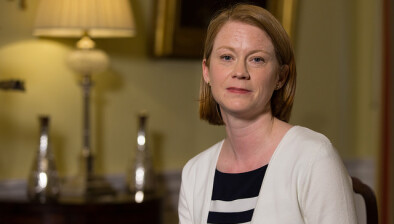Coronavirus delays roll-out of devolved benefits
Devolved benefits due to be rolled-out later this year have been delayed due to the impact of coronavirus on Scotland’s social security services.

In an update to the Scottish Parliament yesterday, social security secretary Shirley Anne Somerville confirmed the introduction of Child Disability Payment and the Scottish Government’s replacement for Personal Independence Payments will be delayed. UK ministers have agreed that they will continue to deliver disability benefits to Scottish clients over a longer transition period, Ms Somerville added.
The Scottish Child Payment, which was due to be introduced from this autumn, will also be delayed, but Ms Somerville said the Scottish Government will focus its resources to deliver this “as soon as practicably possible”.
The aim is to start taking applications by the end of 2020 with payments being made from 2021, subject to sufficient staff being in place.
The majority of Social Security Scotland staff are now working from home to support efforts to slow the spread of COVID-19. The delivery of existing benefits continues with applications being received, processed and payments being made.
In her statement, Ms Somerville also outlined the markedly different approach that the Scottish Government plans to take in its delivery of disability benefits. The new decision-making process for this in Scotland will mean no face-to-face assessments and decisions will be informed by the professional judgement of health and social care practitioners – not assessors.
The new process will involve the following steps:
- Social Security Scotland will make decisions using the information provided by applicants and checking this against existing guidance in the first instance
- where it is not possible to make a decision, applicants will be able to tell Social Security Scotland about the health and social care professionals who already support them. Social Security Scotland will then be able to contact those professionals to collect supporting information
- when it is the only practical way of collecting the information, a minority of working age clients will be invited to a discussion with a health and social care practitioner. If such a client consultation takes place, it would be arranged to suit the client, and the majority of these consultations are expected to be conducted by phone.
Ms Somerville said: “Our priority is maintaining our front-line services and delivering the seven benefits we have in place to support low income families, carers and people facing a bereavement.
“The Scottish Government, DWP, local authorities and – importantly – our health and social care services are focused on responding to the ongoing pandemic. When we get through this, these organisations will then take time to recover.
“We have had to take this into consideration in our plans for future benefits. Our approach to disability assistance was grounded in the professional judgement of health and social care practitioners and they are rightly needed elsewhere at this time. We also need to factor in that there will likely be further impact on Scottish Government and partner organisations staffing levels due to illness or caring responsibilities.
“As such, I have had to take the difficult decision to halt the introduction of disability benefits that were due within the coming year. These will continue to be delivered by the UK Government. This is the only way to ensure people continue to get the financial support they need. It provides certainty and security of payment at a time of great anxiety.
“While I cannot make guarantees around a revised timeline for the introduction of these benefits, I can guarantee that the work will not stop. And I will provide an update to timelines as soon as I am able to do so.
“We will prioritise delivering the Scottish Child Payment and we will do everything humanly possible to deliver this payment as soon as practicably possible. This new payment will play a major part in tackling child poverty, helping those who may be facing even more hardship as a result of coronavirus, and our remaining resources will be directed at that.”
Scottish Labour social security spokesperson Mark Griffin said the news will come as a disappointment to many.
He added: “While Scottish Labour fully understands and respects the decision arrived at by the UK and Scottish Governments, it is imperative that successful transfer of social security powers is secured at the earliest date possible.
“With the exponential increase in claims for Universal Credit precipitated by the coronavirus epidemic, the focus of the Scottish and UK governments must be on ensuring that those who need help in this crisis get it as a matter of urgency.
“The Scottish Government should also set out how it will support local authorities as the number of people accessing the Scottish Welfare Fund increases.”
Peter Kelly, director of the Poverty Alliance, said: “The cabinet secretary’s commitment to prioritising the delivery of the Scottish Child Payment will come as a welcome relief to families living in the grip of poverty. The payment will help to lift thousands of children out of poverty and will be vital in meeting our child poverty reduction targets.
“We know, though, that the coming weeks and months will bring greater challenges. While the Scottish Child Payment should provide a cash boost early next year, families across Scotland need more money in their pockets now. We urge the Scottish Government to examine how it can use every social security lever at its disposal to keep people afloat.”
- Read all of our articles relating to COVID-19 here.






